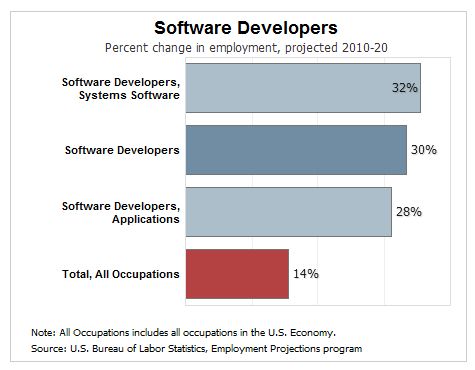Calculate the Chances of a Robot Taking Your Job
If you’re a tech pro, chances are pretty good you spend every day figuring out creative solutions to some very big problems. Does that make your job immune from automation? According to a new tool from NPR, the answer is a qualified “Yes.” NPR’s Planet Money blog based its tool on a formula compiled by Oxford researchers Carl Benedikt Frey and Michael Osborne in 2013. That formula (PDF) mostly relies on data from O*NET, an online service that details 903 occupations. “For our purposes, an important feature of O*NET is that it defines the key features of an occupation as a standardized and measurable set of variables,” the researchers wrote, “but it also provides open-ended descriptions of specific tasks to each occupation.” In addition, the researchers independently judged 70 occupations on their viability for automation. According to NPR’s tool, many computing and mathematical jobs involve a high degree of creativity, negotiation, and human interaction, which radically reduces their collective vulnerability to machine automation in the near future. For example, the tool suggests that developers who build system software have a 12.8 percent chance of seeing their jobs automated within the next few years; meanwhile, software developers who craft applications (which apparently involves slightly more creativity) have only a 4.2 percent chance. If there’s any one group at significant risk, it’s computer programmers, who apparently have a 48.1 percent chance of being automated—largely as a consequence of not interacting quite as often with people. Information security analysts, Web developers, and computer network architects fared a bit better in the tool’s estimation, with a collective 20.6 percent chance of automation; those jobs apparently involve a slightly higher degree of human interaction than programming, although they require roughly the same degree of creative solutions. “The researchers admit that these estimates are rough and likely to be wrong,” read the blog accompanying the tool. “But consider this a snapshot of what some smart people think the future might look like.” For those app-builders and software developers who might have been worried that software would automate their job, that future is actually looking pretty good.



